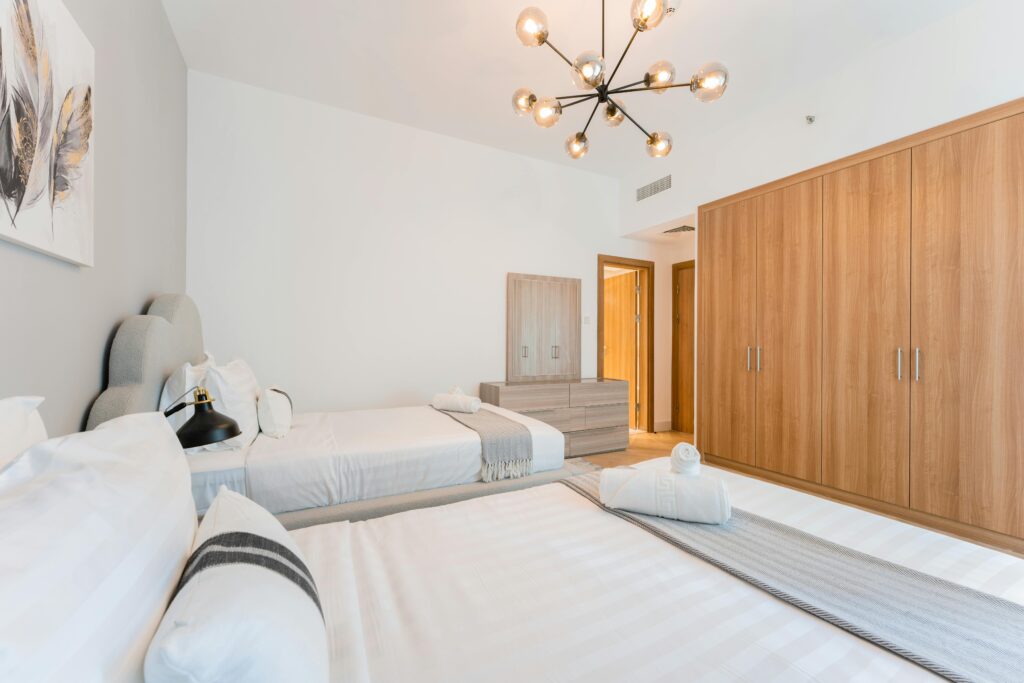How to Manage a Check Out Late Hotel Effectively
Managing a check out late hotel effectively is a crucial aspect of modern hospitality that can significantly enhance guest satisfaction and drive additional revenue. Offering late check-outs provides guests with much-needed flexibility and relaxation, alleviating the stress of a rigid departure time.
By automating these services, hotels can efficiently manage room turnover, maximize profitability, and focus on delivering exceptional guest experiences. This article will delve into best practices for implementing late check-out policies, explore the revenue potential, and highlight how technology can transform this aspect of hotel management into a seamless, guest-friendly service.
Benefits of Offering Late Check-Out
Enhance Guest Experience
Providing a late check-out option can significantly enhance the guest experience by reducing the stress associated with early departures. Guests often seek a relaxing and stress-free stay, especially those on vacation. By allowing them to leave at a more convenient time, hotels can cater to this desire for flexibility. This extended stay option means guests can enjoy a leisurely morning, complete their packing without rush, and even take advantage of local attractions or hotel amenities one last time.
Moreover, the positive experience created by such personalized service can lead to glowing reviews and recommendations, which are vital in the hospitality industry. Hotels that accommodate guest needs are more likely to see return visits and increased loyalty. Providing additional value through late check-out can set a hotel apart from competitors, fostering a reputation for exceptional service.
Generate Extra Revenue
Late check-out services present a valuable opportunity for hotels to generate extra revenue. By charging a nominal fee for this convenience, hotels can capitalize on guests’ willingness to pay for added comfort and flexibility. This fee can vary depending on room demand and availability, allowing hotels to adjust pricing strategically.
Offering late check-out as an upsell option during the booking process or upon arrival can boost overall earnings without significant additional operational costs. Moreover, by integrating this service into loyalty programs or packages, hotels can create an attractive incentive for guests to choose their establishment over competitors.
Additionally, late check-out fees can contribute to covering the costs of expedited cleaning services, ensuring rooms are ready for the next guest promptly. In this way, hotels can maintain operational efficiency while enhancing their bottom line through a well-managed late check-out system.
Implementing Late Check-Out Hotel Policies
Establish Clear Rules and Fees
Establishing clear rules and fees for late check-out is crucial for maintaining operational efficiency and guest satisfaction. Hotels should communicate these policies at multiple points during the guest’s journey, such as during booking confirmation and upon arrival. Clearly defined terms help manage guest expectations and reduce confusion or disputes at check-out. It’s essential to specify the cut-off time for standard check-out and detail any associated costs for staying beyond this time.
Additionally, hotels should outline the process for requesting a late check-out, including deadlines for submission and approval based on room availability. Implementing a tiered fee structure can also be beneficial, charging different rates depending on the extent of the delay. This approach not only encourages adherence to check-out times but also provides guests with flexible options tailored to their needs. By ensuring transparency and consistency in these policies, hotels can effectively manage room turnover and optimize revenue while fostering positive guest relations.
Balance Availability and Demand
Balancing availability and demand is a critical consideration when implementing late check-out policies. Hotels need to evaluate their occupancy rates and predict demand fluctuations to offer this service effectively. During peak seasons or high-occupancy periods, late check-outs might be limited or priced higher to ensure that rooms are available for incoming guests.
Conversely, during off-peak times, hotels may offer more flexible terms to enhance the guest experience and fill room gaps. Utilizing data analytics can help hoteliers forecast demand and adjust their late check-out offerings accordingly. Integrating a dynamic pricing model for late check-out fees can also optimize revenue by reflecting real-time demand. Additionally, hotels may consider offering late check-out privileges to loyalty program members or frequent guests as an added value.
By strategically managing room availability and demand, hotels can maintain high occupancy levels, ensure guest satisfaction, and maximize revenue without compromising operational efficiency.
Automating Late Check-Out Management
Streamline with Specialized Software
Utilizing specialized software can significantly streamline the management of late check-outs, enhancing both efficiency and guest satisfaction. Platforms like Chekin offer tools designed to automate various aspects of hotel operations, including scheduling, communication, and billing for late check-out services.
These platforms enable guests to request late check-outs through user-friendly guest apps, providing instant confirmation and seamless payment processing. Furthermore, automated systems can track room availability in real-time, ensuring that late check-out requests are efficiently coordinated with housekeeping schedules.
By implementing specialized software, hotels can increase revenue per booking by upselling personalized experiences, which not only enhances operational efficiency but also boosts guest loyalty.
Improve Efficiency with Technology
Using technology is key to making late check-out management more efficient in hotels. Automated solutions help streamline operations and reduce manual, error-prone tasks.
Technology also improves communication with guests through automated reminders and confirmations about check-in/ check-out times and fees, increasing transparency and easing the burden on front desk staff. Furthermore, it provides data insights to help hotels understand guests patterns, allowing them to refine their policies and pricing. Adopting these technological solutions boosts efficiency, optimizes resources, and enhances the overall guest experience.
If you are a tourist accommodation or hotel owner and you don’t use Chekin yet. Here is the solution to save 87% of your time and earn more with every booking
Free trial for 14 days. No credit card required!
Conclusion
In conclusion, managing a check out late hotel service effectively requires a strategic blend of clear policies, technology integration, and a focus on guest satisfaction. By offering late check-out options, hotels can enhance the guest experience, generate additional revenue, and differentiate themselves in a competitive market. Establishing clear rules and fees ensures transparency and efficiency, while balancing availability and demand helps maintain operational flow.
Leveraging specialized software like Chekin automates administrative tasks, allowing staff to concentrate on delivering superior hospitality. Embracing technology not only streamlines processes but also provides insights for better decision-making. By prioritizing these elements, hotels can transform late check-out from a logistical challenge into a valuable service that boosts guest loyalty and financial performance. Ultimately, a well-executed late check-out policy can serve as a cornerstone for improved guest experiences and sustained business growth.






